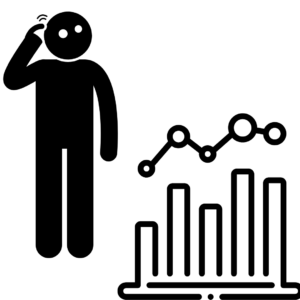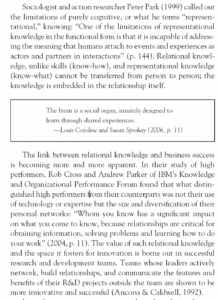This is the 6th installment of Pamela’s Summer of Learning Series.
 One of the challenges in helping leaders develop the 3Cs of agility (Competence, Capacity, and Confidence) is that the emPHAsis is often on the wrong sylLAble.
One of the challenges in helping leaders develop the 3Cs of agility (Competence, Capacity, and Confidence) is that the emPHAsis is often on the wrong sylLAble.
In workplace learning and development, the primary focus tends to be skills and knowledge or:
Know Whats
and
Know Hows
Skills and knowledge are key aspects of competence development; however, without Relational Knowledge, there is a good chance your new competencies won’t translate into improved performance. This is particularly true in volatile conditions requiring novel approaches and learning agility.
Why 50-90% of Change Initiatives Fail
One of the principal reasons 50-90% of mergers, acquisitions, and restructurings fail is the lack of understanding and respect for the relational knowledge embedded across organizations.
In the rush to realize short-term gains, organizations often overlook relational knowledge’s role in how people make sense of complex situations and get things done: with and through other people.
Relational knowledge is unique because it can’t be stored in the cloud, accessed via AI, or acquired through a training program.
Relational Knowledge: What It Is and How You Can Develop It
Relational knowledge is unique because it involves our experience with other people. Unlike “know-hows” and “know-whats” this type of knowledge cannot be passed from one person to the next.

Me and Judy at Our Annual Brunch
For example, I can spend hours telling you about my favorite teacher from 8th grade, Judy Schneebeck (whom I visit each year; see photo), and how she impacted me. While you may know more about her, you won’t have gained relational knowledge. That kind of knowledge requires direct interpersonal interaction and is co-created.
Relational knowledge builds trust and shared engagement at the core of sustained performance in dynamic conditions.
While skills and informational knowledge are as essential as ever in the AI era, success in learning and leadership development depends on how we make sense of and make decisions based on that information—in other words, how we interact with it and each other.
When things don’t go as planned, your relational knowledge can ensure success.
In my book, From Workplace to Playspace: Innovating, Learning and Changing Through Dynamic Engagement, I expand on the importance of Relational Knowledge in uncertain times (p.55):

Five Ways to Develop Your Relational Knowledge
To develop and sustain relational knowledge, the best approach is to learn with and through others. Many of these strategies overlap those for developing your learning agility because they help you get out of your comfort zone and build your confidence in unfamiliar situations:
- Informal learning, such as through volunteering
- Cross-cultural collaborations
- Interdisciplinary teamwork
- Mentoring and coaching
- Expand and diversify your Relational Web
Bonus Resources
Three platforms for building online communities and fostering relational knowledge:
- Ning(a robust platform I have used for building and sustaining learning communities)
- Newer on the scene for community engagement is Mightynetworks
- Patreon(geared to creatives who want to build community among their followers)
- There’s Still Time! If your colleagues and team members could use a boost of inspiration, please share the #SummerOfLearning “Learning Letter” sign-up link: Share SOL Newsletter!
